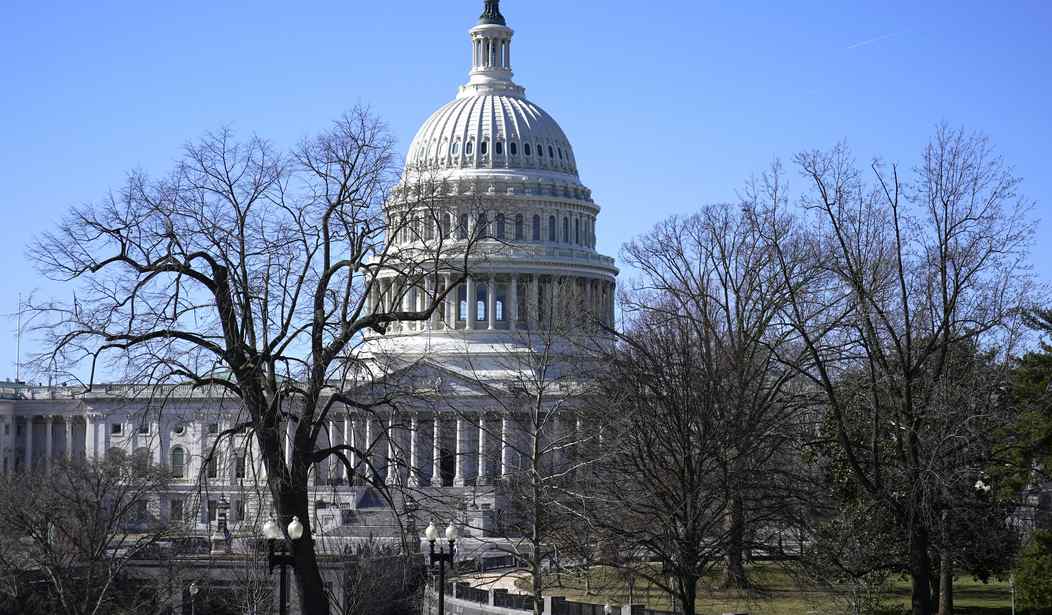Economic upheaval currently dominates the concerns of most Americans, who more and more are now staring at empty shelves and having cold sweats over the thought of filling up their gas tanks. Inflation is at a 40-year high and climbing with no end in sight as the White House responds by setting a new high in the ‘Index of Economic Blame.’
If one silver lining has arisen from this disaster it is the growing consensus for securing America’s supply chain through domestic workers, resources, and production. An effort is already underway in Congress to help the U.S. regain its formerly undisputed leadership in semiconductors, recognizing that dependence on foreign manufacturers threatens America’s economic and national security. Lawmakers are also calling for greater domestic energy production, as the price of oil has shot up over 70 percent in 12 months and looks to go even higher with the destabilizing impact of the Russian invasion of Ukraine.
These are important steps, and underscore the lesson that price stability and a secure supply chain are the critical components of long-term economic strength. This is a call to avoid over-reliance on foreign producers when there are vibrant, competitive, and available industries here at home
Astoundingly there are still some calling for America to surrender a key component of our food supply to foreign suppliers. The debate over U.S. sugar policy is not a new one, but has become a flashpoint in trade policy for those who would forsake American industry and thousands of its workers for a temporary price advantage, in essence trading a short-term gain for long-term pain.
Recommended
Currently some U.S. food manufacturers argue they are paying too much for sugar due to U.S. policy that limits the amount of imported foreign sugar. Were it true that foreign competitors could fairly deliver raw and refined sugar at a lower price on the open market better than the thousands of U.S. growers then there would be no issue to debate. But the food makers’ myths surrounding America’s sugar policy are dangerously simplistic and self-serving, and have absolutely no resemblance to fair and open trade.
Sugar is, by far, the most corrupt and distorted global food commodity, with the major sugar-producing nations such as India, China, Brazil and others subsidizing their domestic production to the tune of billions of dollars a year, often selling it below cost. Meanwhile they erect high tariffs and sugar import quotas as trade barriers to their own domestic economy. Why would America reward the predatory and illegal trade practices of other nations who aim to torpedo our domestic agriculture?
If America were to eliminate our sensible and necessary import quotas we would soon be drowning in a flood of cheap, subsidized foreign sugar that would wipe U.S. sugar growers off the map. Then, with the competition eliminated, foreign importers would naturally increase the price, and consumers would find themselves captive to wild fluctuations in cost and supply from this very unstable, corrupt, and inefficient global market. Sound familiar?
Europe tried this 15 years ago, with the EU unilaterally disarming its trade barriers to foreign nations’ dumping practices, only to see their domestic sugar industry decimated and then prices raised by the sugar barbarians who had been invited to raid their shores. Finding themselves with wildly fluctuating prices and unstable supply, Europe has since scrambled to rebuild their domestic sugar industry through subsidies and quotas.
Even the feckless World Trade Organization is ruling on illegal sugar subsidies and announcing violations of international trade agreements. Despite the protests of the world’s biggest sugar growers, India, China, Brazil, and Indonesia, trade violations are not an exception but their entire business model.
Meanwhile the U.S. policy does not subsidize domestic sugar at all, but merely sets import quotas to prevent illegal dumping while offering interest-bearing loans to sugar producers. The result is an affordable and stable supply of sugar. Indexed to inflation, sugar is actually cheaper today than it was in the 1980s, so it is still an incredibly good deal for consumers and food processors.
Manufacturers claim they are trying to help the U.S. consumer by lowering their costs, but as one exhaustive study showed, cheaper sugar would only increase their profit margins, with little to no savings passed on to consumers. Until other nations agree to eliminate their subsidies and trade barriers, the current U.S. policy on sugar must stay in place. It is good for our economy, good for farmers, good for consumers, and plants a flag in the policy debate that says America is pushing back against economic surrender.

























Join the conversation as a VIP Member